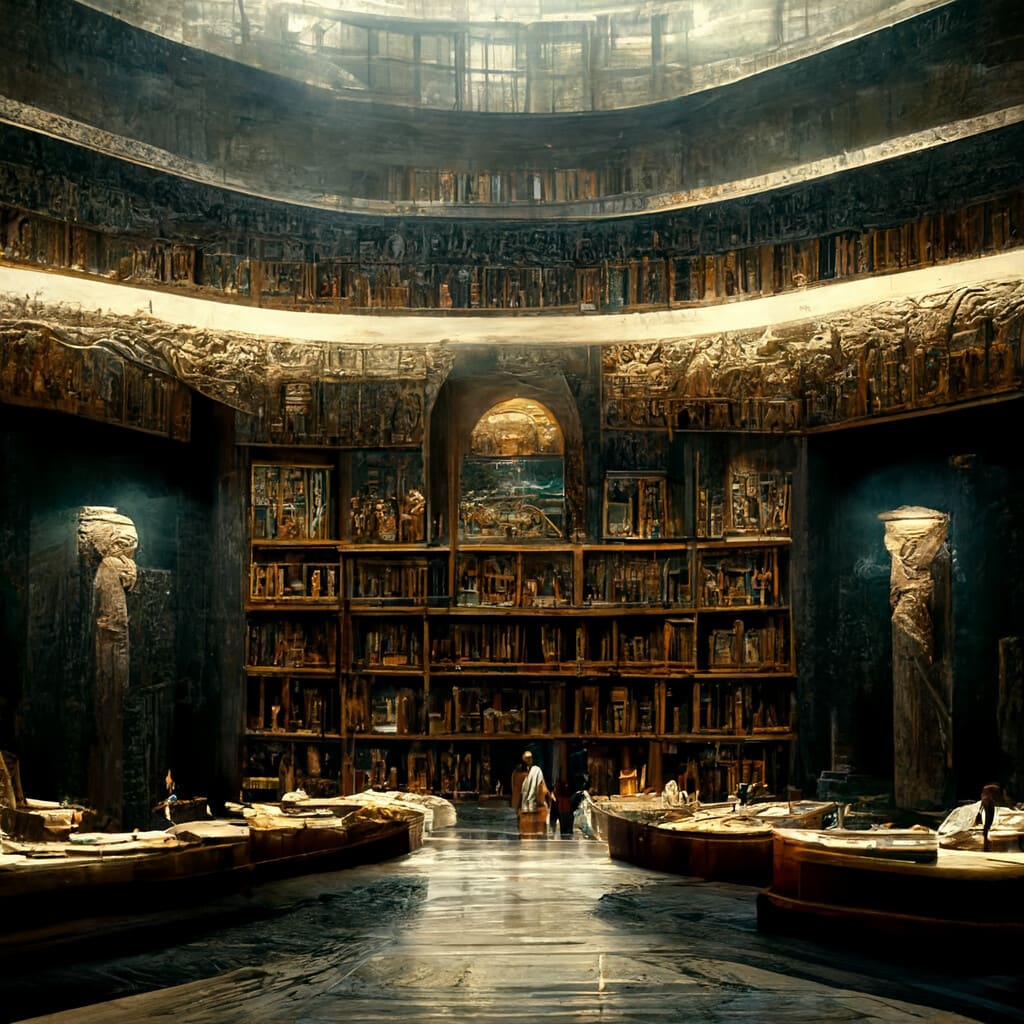Historical Overview

The Library of Alexandria, located in the ancient Egyptian city of Alexandria, was described as one of the largest and most significant libraries of the ancient world[1]. Founded in the 3rd century BCE during the reign of Ptolemy I Soter or his son, Ptolemy II Philadelphus, it was established with the grand purpose of collecting all the knowledge of the known world[1]. This remarkable ambition set the stage for its lasting influence on the cultural landscape of the ancient world, positioning the library not only as a center of learning but also as a symbol of intellectual aspiration and cultural unity.
Center of Knowledge and Scholarship
One of the most striking cultural impacts of the Library of Alexandria was its role as a leading center of scholarship and learning[1]. The library was intentionally designed to gather texts from across the Mediterranean and beyond. As the source explains, it aimed to collect all existing knowledge—a mission that was both cultural and scholarly in nature, ensuring that works in science, mathematics, astronomy, literature, and philosophy were preserved and disseminated[1]. The method of gathering texts was rigorous; for instance, ships arriving in Alexandria were reportedly required to turn over any books they carried so that copies could be made, with originals sometimes kept in the library[1]. This process not only secured the literary heritage of various civilizations but also stimulated a broader cultural dialogue by bringing together diverse intellectual traditions.
Intellectual Hub and Cultural Exchange
The library’s influence extended beyond mere collection and preservation of texts. It became a vibrant intellectual hub, attracting scholars from all over the world[1]. This confluence of diverse minds generated a robust environment for dialogue and scholarly debate. The cultural impact was evident in the way the library transformed Alexandria into a meeting point for thinkers and researchers, facilitating the exchange of ideas that spanned different cultures and regions[1]. The presence of renowned scholars contributed to establishing the library’s reputation as a center of excellence in learning and inquiry. This cultural cross-pollination not only enriched the repository of human knowledge but also spurred innovations that resonated through centuries.
Legacy in Cultural Preservation and Intellectual Traditions

The Library of Alexandria left an indelible mark on the cultural and intellectual traditions of the ancient world. By striving to amass all known knowledge, the library did more than just store texts; it created an environment where cultural heritage was actively preserved and celebrated[1]. Its practice of copying texts and maintaining a comprehensive repository helped ensure that significant works from various civilizations were not lost with time[1]. This method of preserving knowledge had long-term cultural implications, influencing future libraries and institutions dedicated to scholarship and the study of human thought. The library’s legacy is a testament to how a commitment to gathering and sharing ideas can shape cultural development, foster intellectual growth, and maintain a historical record of human achievement[1].
Get more accurate answers with Super Search, upload files, personalized discovery feed, save searches and contribute to the PandiPedia.
Let's look at alternatives:
- Modify the query.
- Start a new thread.
- Remove sources (if manually added).
- Request a manual search from our human research team.



